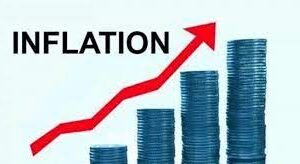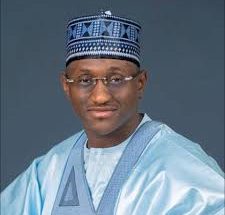The presidential and National Assembly elections conducted on 25th February, have come and gone. The Independent National Electoral Commission (INEC) declared Bola Ahmed Tinubu of the All Progressives Congress (APC) as the president-elect having polled 8,794,726 to beat Atiku Abubakar PDP, Peter Obi, LP and Rabiu Kwankwaso, NNPP.
However, the battle has shifted to the court. The leading contenders in the presidential race have disputed and rejected its outcome. They picked holes on the results and are challenging it at the tribunal. But opposition parties should blame themselves for their inability to wrest power from the ruling party. They went into the poll as a divided house.
The PDP’s G-5 splinter group has done great damage to Atiku’s presidency. Peter Obi, who is a distant third in the race, could not win the popular vote. His Kabour Party, LP, had won 12 states but could not garner the highest votes to sail to victory. However, the just concluded presidential and National Assembly elections’ results had shocked Nigerians to their marrow.
The landslide victory of LP in Lagos state, a stronghold of APC, was the first shock of the election. In Katsina state, the home President Muhammadu Buhari, the ruling APC lost to PDP. Yobe state which has been in opposition politics since the return of democracy, slipped back to PDP. Another surprise that dogged or trailed the outcome of the last elections was how eight serving governors lost their bid for the senate.
The Social Democracy Party (SDP) also won two senate seats in Nasarawa state. Many political pundits have quickly stated that the two decades of Nigerian democracy has improved greatly. The political culture is fast evolving, leading to the electorate making wise choices and voting for personalities instead of political parties. This is a good omen for our democracy. In Kaduna state, the ruling party suffered humiliating defeat, losing three senatorial seats and 14 members of the House of Representatives to opposition parties.
However, Kaduna state APC’s shameful defeat did not come to many political observers as a surprise. The state is being governed by an astute technocrat; Governor Nasir El-Rufai is not a local politician. Throughout his nearly eight years in the saddle, El-Rufai has failed to carry local politicians along. It has been repeatedly said that all politics is local. This has never been in El-Rufai’s political lexicon. Besides, some of his policies are considered harsh and must have contributed to the sudden defeat of the party in Kaduna state.
With the emergence of Tinubu as president-elect, the question begging for answer is: will the voting pattern change in the forthcoming gubernatorial election? It is on record that any party that wins the presidential election is expected to comfortably win majority of states governors. This has been the norm or tradition from time immemorial.
With the commendable efforts of INEC which led to the conduct of free, fair and credible elections, there is every tendency that Nigerians will vote based on personalities and replicate what they did at the presidential and National Assembly elections. However, there is also the probability that APC will win where it lost. Many states which are considered as “no go areas” for the ruling party can safely fall back into their hands.
For instance, APC may recover Lagos, Yobe and Katsina states which it lost to PDP and LP tsunami. PDP may also recover some South-east and South-south states which are considered its strongholds but lost during the presidential elections.
The next gubernatorial and state assembly elections will produce another surprise or shock outcomes. Whatever may be the results, our politicians should accept it in good faith. It is obvious that in any election, there must be a winner and a loser.
Ibrahim Mustapha,
Pambegua, Kaduna state
08169056963




